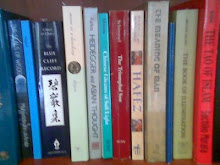
Saudara pembaca budiman,
Alhamdulillah pada 13-16 Feb.2007 ditakdirkan hamba terpaksa terbang ke new delhi untuk hadiri mesyuarat dengan menteri luar India mr.Pranap Murkerji bersama delegasi Malaysia diketuai YB Menteri Syed Hamid Albar. Peluang hanya sekali tapi sebab dah lama baca buku Sh.Nizamudin Awliya guru Chisti tersohor dan juga Sh.Waliyullah Dehlavi dan cerita tablighi markas Nizamudin maka dapat juga hamba bertolak dengan teksi vesps tut-tut dari Taj Palace Hotel kira-kira 15 km ke kota lama Nizamudin.
Lorong kecil di Dergah(Makam dan Masjid)Nizamudin penuh dengan ribuan manusia, pengemis, kambing-kambing bebiri juga lalu sama, penjual bunga dan para pengunjung berdoa serta bersedekah. Oh masjid asal depan makam Nizamudin kecil juga. Berwarna merah, lalu hamba salat sunat, berdoa dan berbisik seraya menyerahkan suatu amanah kepada seorang faqir disudut masjid. Lega dan terus keluar. Sempat berdoa dan baca Fatihah depan makam wali mulia ini yang dulu berjuang dan berdakwah mengislam ramai penduduk india utara zaman Raja Mahmud Ghzani dan keturunan Mughal Timurlane.
Kami akhiri lawatan dengan doa :
Rabbi habli hukman wa alhiqni bis-salihin.
Allahumma aina ala zikrika wa syukrika wa husni ibaditika.
Rabbi adhkhilni mudhkhala sidqin wa akhrijni
mukhraja sidqin waj-alli min ladunka sultanan nasira.

Sedikit fakta ilmiah dan baraka sh.nizamudin chisti, maaf dalam bahasa inggeris:
ReplyDeleteSidi Nizamuddin Awliya (by Sidi Nawab Gudri Shah Baba)
"In GOD's garden you gather roses,
Being drunk with Divine mysteries:
Sidi Mehboob-e-Elahi ,
O, how I long for the attar
(perfume) of your company
Sidi Nizamuddin Awliya (d. 1325 A.D.) represents in many ways the pinnacle of the Chishti Order of the Sufis. Sidi Baba Farid, his spiritual guide, said to him on appointing him as his successor: "Be like a big tree, so that Allah's creation, the human beings in their vast multitudes, may find rest and solace under your shadow." This partly explains why he admitted so many (according to some, including Barani, too many) men into the Chishti order as his disciples. Another reason has been clearly formulated in this way: "History, nonetheless, bears out the wisdom of his open-ended policy . . . To far-flung areas of Uttar Pradesh, Rajastan, Gujarat, Bihar, Bengal and the Deccan, Sidi Nizamuddin Awliya sent able disciples well versed in the Chishti practices, yet sensitive to the needs of the local populace."
With regard to the Sufi path, Sidi Nizamuddin Awliya taught the following: "For a dervish, three things are necessary. They all begin with an 'ain' (an Arabic letter), i.e., Ishq (love), Aql (intelligence) and Ilm (knowledge). Let us discuss these three qualities one by one.
Sufism is, in its essence, the way of love. Love is considered to be a spiritual alchemy by means of which the baser qualities of a human being are transformed into higher ones. In this respect it suffices to say that Sidi Nizamuddin Awliya is known as Mehboob-e-Elahi, the beloved of Allah. Of course the spiritual status of a beloved is much higher than that of a lover.
'Intelligence' changed in the hands of Sidi Nizamuddin Awliya into wisdom. His wisdom manifested itself in the shape of service to humanity. About him it has been said: "He was not a miracle-monger of the ordinary sort. He never flew in the air or walked on water with dry and motionless feet. His greatness was the greatness of a loving heart; his miracles were the miracles of a deeply sympathetic soul. He could read a man's inner heart by a glance at his face and spoke the words that brought consolation to a tortured heart."
About 'knowledge', the third faculty of a dervish, it can be said that Sidi Nizamuddin Awliya was one of the greatest scholars of his day. He wanted to become a Qazi, but gave it all up in his pursuit of inner knowledge. After becoming a Murid (spiritual disciple) of Sidi Baba Farid, he lived in extremely poor circumstances. Seeing him, a former friend expressed great surprise as he remembered Sidi Nizamuddin Awliya as one who had begun a very promising career as a scholar. When Sidi Nizamuddin Awliya told all of this to Sidi Baba Farid, his murshid (spiritual guide) suggested that he should recite the following couplet to his friend:
You are not my fellow traveller.
Tread your own path
May you be affluent.
And I downtrodden.